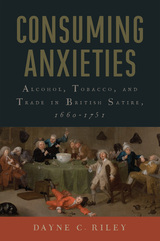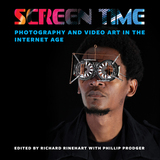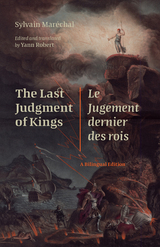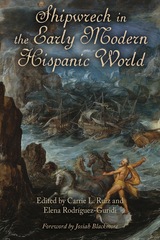112 scholarly books by Bucknell University Press and 5
have author last names that start with R
112 scholarly books by Bucknell University Press and 5
112 scholarly books by Bucknell University Press
5 have author last names that start with R have author last names that start with R
5 have author last names that start with R have author last names that start with R

Latin American Literature at the Millennium
Local Lives, Global Spaces
Cecily Raynor
Bucknell University Press, 2021
Latin American Literature at the Millennium: Local Lives, Global Spaces analyzes literary constructions of locality from the early 1990s to the mid 2010s. In this astute study, Raynor reads work by Roberto Bolaño, Valeria Luiselli, Luiz Ruffato, Bernardo Carvalho, João Gilberto Noll, and Wilson Bueno to reveal representations of the human experience that unsettle conventionally understood links between locality and geographical place. The book raises vital considerations for understanding the region’s transition into the twenty-first century, and for evaluating Latin American authors’ representations of everyday place and modes of belonging.
[more]

Consuming Anxieties
Alcohol, Tobacco, and Trade in British Satire, 1660-1751
Dayne C. Riley
Bucknell University Press, 2024
Writers of the late seventeenth and early eighteenth centuries—a period of vast economic change—recognized that the global trade in alcohol and tobacco promised a brighter financial future for England, even as overindulgence at home posed serious moral pitfalls. This engaging and original study explores how literary satirists represented these consumables—and related anxieties about the changing nature of Britishness—in their work. Riley traces the satirical treatment of wine, beer, ale, gin, pipe tobacco, and snuff from the beginning of Charles II’s reign, through the boom in tobacco’s popularity, to the end of the Gin Craze in libertine poems and plays, anonymous verse, ballad operas, and the satire of canonical writers such as Gay, Pope, and Swift. Focusing on social concerns about class, race, and gender, Consuming Anxieties examines how satirists championed Britain’s economic strength on the world stage while critiquing the effects of consumable luxuries on the British body and consciousness.
[more]

Screen Time
Photography and Video Art in the Internet Age
Richard Rinehart
Bucknell University Press, 2022
Published on the occasion of the art exhibition Screen Time: Photography and Video Art in the Internet Age, this catalog features a selection of leading international artists who engage with and critique the role of media in contemporary society. Their work demonstrates what has become known as post-internet artistic practices—art that may or may not be made for the internet but nevertheless acknowledges online culture as an omnipresent influence, inseparable from contemporary social conditions. They ask what it means to be a photographer when everyone is an Instagram influencer; what it means to make video art when everyone is a TikTok video star; and how to deliver meaningful social commentary in the age of the meme. The exhibition and accompanying catalog showcase artwork by N. Dash, Nathalie Djurberg, Marcel Dzama, Peter Funch, Cyrus Kabiru, William Kentridge, Christian Marclay, Marilyn Minter, Vik Muniz, Otobong Nkanga, Erwin Olaf, Robin Rhode, Vee Speers, Mary Sue, Puck Verkade, Huang Yan.
Published by Bucknell University Press for the Samek Art Museum.
Distributed worldwide by Rutgers University Press.
Published by Bucknell University Press for the Samek Art Museum.
Distributed worldwide by Rutgers University Press.
[more]

The Last Judgment of Kings / Le Jugement dernier des rois
A Bilingual Edition
Yann Robert
Bucknell University Press
First performed the day after Marie-Antoinette’s beheading, Le Jugement dernier des rois stages the burlesque trial of the remaining kings and queens of Europe—paraded in chains like animals, made to brawl over a barrel of crackers, and finally obliterated by a spectacular volcanic eruption. Such is the shocking context—at once tragic and farcical—of the most infamous play of the French Revolution, familiar to all specialists of the period. Until now, however, no standalone critical edition or English translation of this historic play existed. This bilingual edition revives Maréchal’s play and reveals its centrality to scholarly debates about Revolutionary notions of justice, religion, commemoration, comedy, and propaganda. Provocative, written in accessible prose, and short—perfect for students in a French or history seminar—Le Jugement dernier des rois offers an ideal introduction to the most important and contentious questions of the Revolutionary period.
Joué pour la première fois le lendemain de l’exécution de Marie-Antoinette, Le Jugement dernier des rois met en scène le procès burlesque des autres rois et reines d’Europe : exhibés et enchaînés tels des animaux, contraints de se battre pour un tonneau de biscuits, et finalement anéantis par l’éruption spectaculaire d’un volcan. Tel est le contexte scandaleux—tragédie et farce à la fois—de la pièce la plus célèbre de la Révolution française, bien connue de tous les spécialistes de cette période. Jusqu’à maintenant, pourtant, il n’existait ni édition critique ni traduction anglaise de cet ouvrage historique. Notre édition bilingue fait revivre la pièce de Maréchal et la replace au centre des plus grands débats chez les historiens de la Révolution, traitant de justice, religion, commémoration, comédie, et propagande. Provocateur, facile à lire, et concis—parfaitement adapté aux étudiants d’un cours de français ou d’histoire—Le Jugement dernier des rois propose ainsi une introduction idéale à la période révolutionnaire et à ses principales controverses.
Published by Bucknell University Press. Distributed worldwide by Rutgers University Press.
Joué pour la première fois le lendemain de l’exécution de Marie-Antoinette, Le Jugement dernier des rois met en scène le procès burlesque des autres rois et reines d’Europe : exhibés et enchaînés tels des animaux, contraints de se battre pour un tonneau de biscuits, et finalement anéantis par l’éruption spectaculaire d’un volcan. Tel est le contexte scandaleux—tragédie et farce à la fois—de la pièce la plus célèbre de la Révolution française, bien connue de tous les spécialistes de cette période. Jusqu’à maintenant, pourtant, il n’existait ni édition critique ni traduction anglaise de cet ouvrage historique. Notre édition bilingue fait revivre la pièce de Maréchal et la replace au centre des plus grands débats chez les historiens de la Révolution, traitant de justice, religion, commémoration, comédie, et propagande. Provocateur, facile à lire, et concis—parfaitement adapté aux étudiants d’un cours de français ou d’histoire—Le Jugement dernier des rois propose ainsi une introduction idéale à la période révolutionnaire et à ses principales controverses.
Published by Bucknell University Press. Distributed worldwide by Rutgers University Press.
[more]

Shipwreck in the Early Modern Hispanic World
Carrie L. Ruiz
Bucknell University Press, 2022
Seafaring activity for trade and travel was dominant throughout the Spanish Empire, and in the worldview and imagination of its inhabitants, the specter of shipwreck loomed large. Shipwreck in the Early Modern Hispanic World probes this preoccupation by examining portrayals of nautical disasters in sixteenth- and seventeenth-century Spanish literature and culture. The essays collected here showcase shipwreck’s symbolic deployment to question colonial expansion and transoceanic trade; to critique the Christian enterprise overseas; to signal the collapse of dominant social order; and to relay moral messages and represent socio-political debates. The contributors find examples in poetry, theater, narrative fiction, and other print artifacts, and approach the topic variously through the lens of historical, literary, and cultural studies. Ultimately demonstrating how shipwrecks both shaped and destabilized perceptions of the Spanish Empire worldwide, this analytically rich volume is the first in Hispanic studies to investigate the darker side of mercantile and imperial expansion through maritime disaster.
[more]
READERS
Browse our collection.
PUBLISHERS
See BiblioVault's publisher services.
STUDENT SERVICES
Files for college accessibility offices.
UChicago Accessibility Resources
home | accessibility | search | about | contact us
BiblioVault ® 2001 - 2024
The University of Chicago Press









